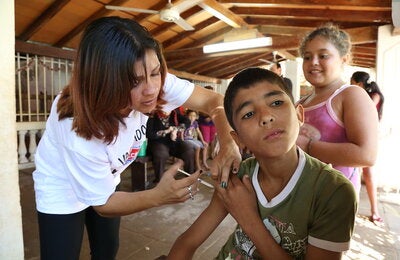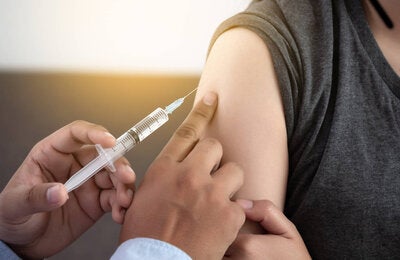
Although the number of blood units collected in the Region has increased, most has come from family or replacement donors
Washington, D.C., 1 October 2014 (PAHO/WHO)— Ministers of Health from throughout the Americas today agreed on a series of actions to ensure safe and sufficient supplies of blood and blood products through voluntary altruistic donations, with the goal of saving lives and improving the health of patients who need transfusions.
Blood transfusions are important, life-saving interventions for mothers during obstetric emergencies and are also often needed for treatment of severely anemic children, patients with hemoglobin disorders, people injured in accidents, cancer patients, people who undergo major surgery, and others.
The new Plan of Action for Universal Access to Safe Blood 2014-2019 was approved during the 53rd Directing Council of the Pan American Health Organization (PAHO), which is being held this week (Sept. 29 to Oct. 3) in Washington, D.C.
Over the last few years, the number of blood units collected in the region increased; in 2012, over 9 million units were collected. The increase, however, was not shared evenly across countries and came largely from family or replacement donation rather than voluntary altruistic donation, which is the safest form of blood collection.
According to PAHO/WHO data, blood-borne pathogens such as HIV and hepatitis viruses are much more common in the blood of paid and replacement donors than in voluntary altruistic donors. This is because both paid and replacement donors are more likely to hide risky behaviors from blood bank personnel than are people whose only motivation is to give the gift of blood.
On average, only 4 in 10 blood donors in Latin America and the Caribbean are volunteer altruistic donors, and only 12 countries report 100% of units collected from this type of donor. The plan of action approved this week calls on countries to achieve self?sufficiency in blood and blood products through 100% voluntary altruistic donations.
The plan also urges strong leadership on this issue by national health authorities; the integration of national blood programs and services into national health systems; screening of 100% of blood units for transfusion-transmissible infections such as HIV, hepatitis B and C, and syphilis; appropriate use of blood and blood products; and strengthened surveillance, risk management, monitoring, and evaluation.
"This plan will be an opportunity to channel efforts and guarantee that health services improve the availability and accessibility of safe blood and blood products obtained entirely from volunteer donors," noted María Dolores Pérez-Rosales, PAHO/WHO Regional Advisor on Blood Services and Organ Transplants.



